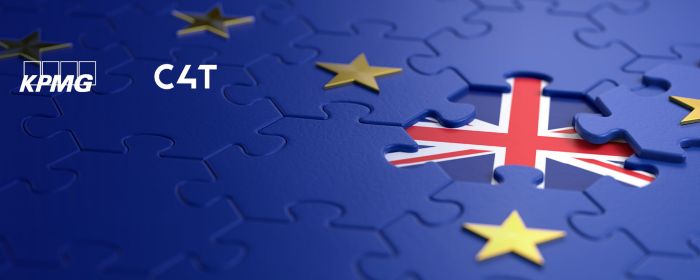With customs audit activity increasing in both the UK and the EU, it is important to ensure that your business is compliant. Our previous webinar attracted lots of questions around how to manage compliance without it being the burden we all know it can be. We’ve addressed those key questions and concerns in this webinar to demonstrate how to make the overall customs process less burdensome but more compliant.
We talk about how best to prepare for an audit and why it’s so important to ensure that your business is compliant. We discuss why compliance is important and what “good compliance” could look like. One of the key topics within the previous Q&A was Preferential Origin and how to correctly determine the customs origin on import – we’ve dedicated a section of the webinar to this topic to discuss how your business can make origin claims with confidence. We also provide a short demo of our Data Analytics tool which we’ve developed to support in-house customs compliance checks using your own data.
Taking the declaration process in-house is becoming more appealing for businesses and can support businesses in managing the customs compliance burden. With self-filing, the compliance burden becomes less manual, which in turn provides less room for errors to creep in. Automation of customs declarations at the border also provides for a speedier clearance process and ensures that the business has full control over what is being declared. Having full control of the data and hosting it in one centralized location increases your ability to show and evidence your audit trail without you or a third party digging through paper storage locations!
The alliance between the Belgian and UK KPMG customs teams and our customs technology partner C4T provides our clients with an unbeatable set of skills to help them flourish during these changing times, with a focus on processes that go beyond compliance and add value to their businesses.
Relive the webinar
"The Customs Compliance Burden?" hosted Tuesday, 22 March 2022
During this webinar we provided insights on the following topics:
- Customs Compliance: why and what?
- Why do you need to comply when it comes to customs?
- What does good compliance look like?
- Origin: why is compliance key?
- Audits are on the way: what do you need to be prepared for?
- Data Analytics: using valuable data to embed compliance.
- Self-filing: the audit support process.
If you missed the webinar or would like to revisit it, we invite you to watch the recording and download the slides.
Watch the recording
Please select your preferred topic by clicking on the corresponding video. Should you have any further questions or comments, do not hesitate to reach out to our experts.
Q & A
RGR has become more important post Brexit - evidence of original export is required - however some customs authorities (the UK for example) allow this evidence to be held centrally rather than provided for each individual import. This requires pre-authorization.
They key is automating the mundane and ensuring checks are risk based.
Very difficult question – without a network like KPMG, it is difficult to keep on top of differences in law and interpretation. We provide a retainer/helpline arrangement for many clients to cover these knowledge gaps.
We're seeing an absolute increase in the level of audit activity from the customs authorities - with the increase in the volume and complexity of declarations, this is not a surprise.
Accessing MSS data is a good step to take - this provides declaration data direct from HMRC.
UK perspective:
There are no 'Licensed' agents like in the US. It's indeed difficult to manage what the brokers do. Penalty clauses in your service level agreements with them can be a way to ensure more correctness. It's a commercial issue that you have to force the broker to do what you want them to do, but there is a stick from the government to hit them with if they go wrong. On the www.gov.uk site is an option to amend your export declarations online. There are also online versions of a) the ability to recover overpaid duty and b) to declare an underpayment of duty based on a declaration error.
EU perspective:
It's indeed difficult to get rectifications done in a timely manner but key point here is to have a tracking in place and it should be taken up in the SLAs and the vendor satisfaction discussions with your customs agents. Automation is the best answer to all human errors. For more information on customs automation, please reach out to us.
Have a view on your own customs profile. Check who is doing the declarations on your behalf. MSS data in the UK or PLDA data in Belgium can show you which business partners are filing on your behalf. Have ownership of your data, and once again, MSS data and our Data Analytics tool provides visibility over your entries and who is filing on your behalf. Another way is CAS, with this customs automation tool, you can do self-filing and have more ownership and visibility of your supply chain.
The overall time limit is 3 years - this is the time period in which a customs debt remains live in both EU and UK legislation, and as such declaration "amendments" are acceptable/required. How the mechanics of "live" declaration amendments are processed depend on the countries involved.
The important point is to understand what your client is doing with your goods. If they're using your goods as inputs for manufacturing other goods, then – even if the duty rate is zero - they may need your statement on origin (effectively acting as a "supplier's declaration") to export their goods to countries where preferential treatment applies (for example for the purpose of cumulation).
The audit process works in terms of the import authority asking the export authority to verify that the statement on origin is correctly issued.
Regardless of what the supplier declares at export, it's always the importer's responsibility to declare the correct commodity code at import.
Yes - a version of MSS will be available - at the moment it is unclear when the data will be provided free of charge.
This is a very difficulot question. With prepayed shipments you have no contractual relatinship with the courier. If mistakes are being made, they need to be made clear to HMRC as many couriers carry AEO accreditation.
Explore
Discover how KPMG Belgium, KPMG UK and C4T can help you with any trade or customs issue or sign up for our newsletters, to make sure you receive the latest insights and invitations to our webinars.




